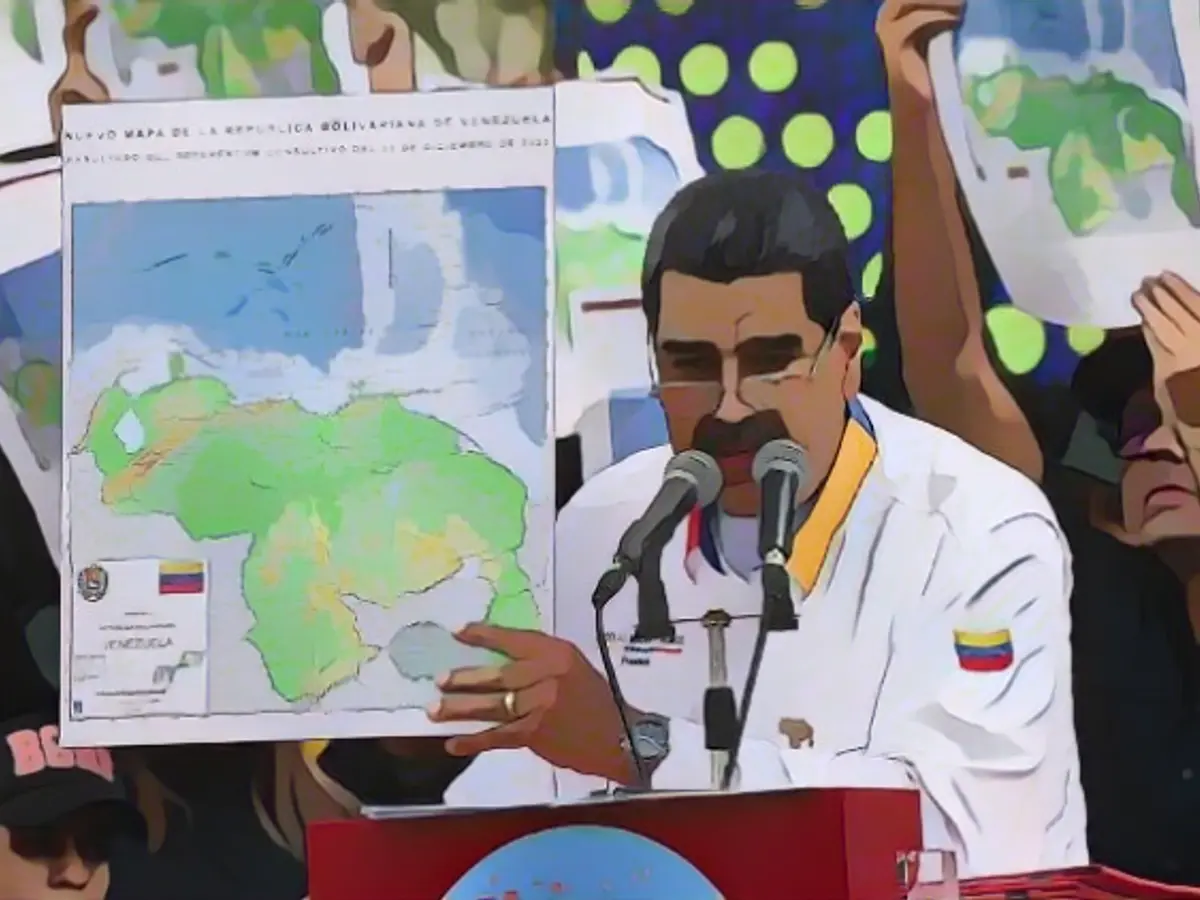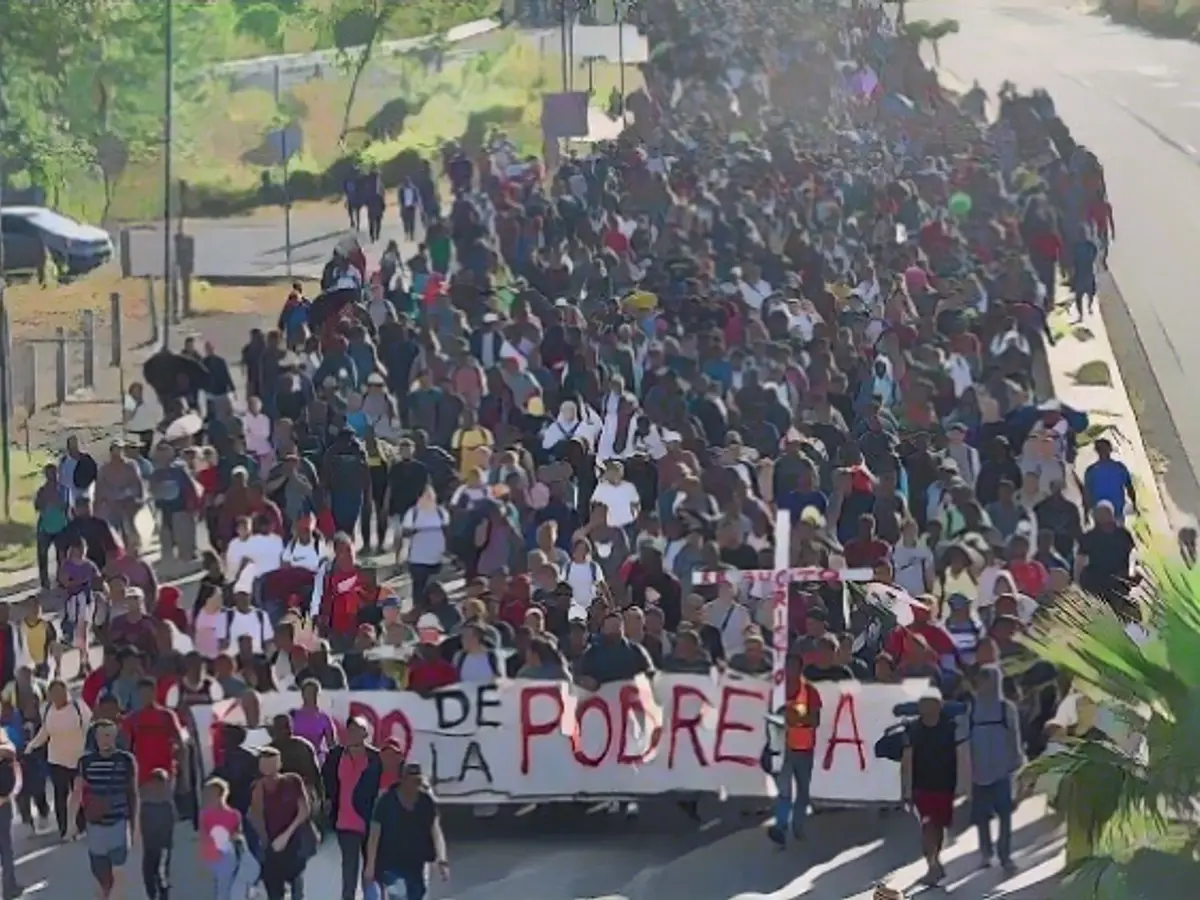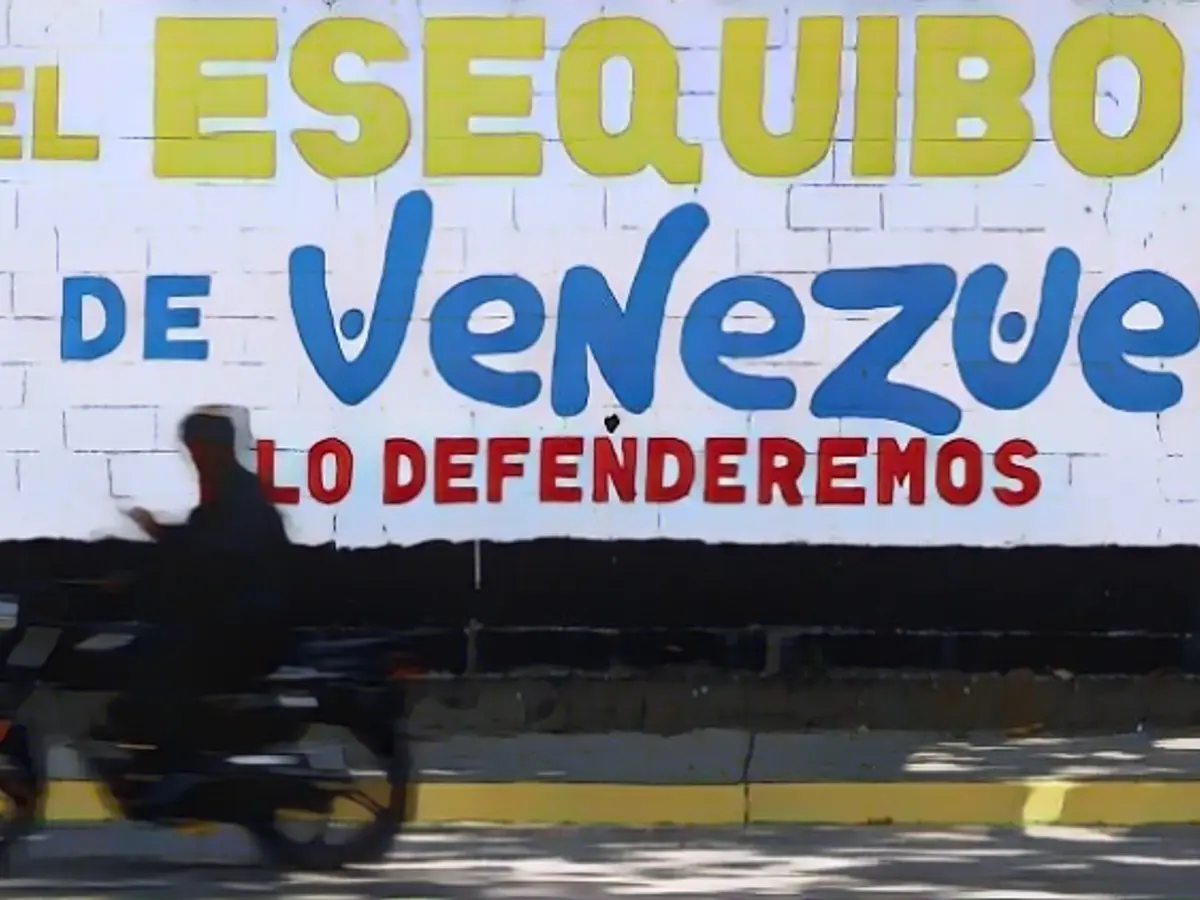Jungle Warfare: The Impassable Eldorado? A Reboot
After Venezuela's controversial annexation referendum, tension between the two South American nations, Venezuela and Guyana, has eased, but the region's raw material riches—including newfound oil discoveries—continue to fuel a mostly underlying dispute. Local experts, like historian Christian Cwik of the University of Graz's Center for Inter-American Studies, shed some light on the current situation and history of the perpetual border dispute.
Guyana's Disputed Territory
Centered around Essequibo, a region brimming with natural resources such as oil, natural gas, diamonds, and gold, the ongoing border dispute dates back to the colonial era. Venezuela, claiming historical rights, has long laid claim to the area, which Guyana sees as part of its national territory. This disagreement is further exacerbated by Venezuela's assertions of discovery rights following the discovery of significant oil reserves along its neighbor's Atlantic coast in 2015. The growing tension between the two nations has led to diplomatic discourse and even the possibility of military intervention, despite the region's dense and impassable rainforest terrain.
Venezuela's Historic Claims
The roots of the dispute trace back to the 19th century. British surveyor Robert Schomburgk drew the Schomburgk Line in 1840, which asserted British control over much of either side of the Essequibo River. Though this was met with objections from Venezuela, the dispute remained dormant for over a century. In 1899, a resolution was reached through international arbitration, with the border being placed along the Schomburgk Line. However, Venezuela continued to dispute the decision based on historical boundaries.
Recent developments
In recent years, the dispute has intensified, with the discovery of significant oil and gas reserves off the Guyana coast pushing tensions further. Venezuela, seeking to resolve the dispute, presented an updated map to both Guyana and the United Nations in 2007, laying claim to the majority of the disputed region. Although the Geneva Agreement in 1966 saw some resolution, these recent developments have reignited the debate.
Current Diplomatic Relations
Diplomacy has played an essential role in easing the tensions between the two countries. In 2006, Venezuela and Guyana established a commission, making significant strides to reach a mutually satisfactory resolution. However, with the increased stakes of global commodities at play, the border dispute remains an area of concern. In its efforts to pinpoint a viable solution, experts like Cwik emphasize that "a military intervention in the dense and impassable Eldorado rainforest is actually impossible..."
Potential Implications
Cwik, a researcher in the field, draws on his expertise to provide insight into the underlying causes and possible consequences of the conflict. While past treaties and agreements have attempted to solve the crisis, the disagreement over historical rights and territorial claims presents a significant challenge. More recently, the power play between Venezuela and Guyana over the oil and gas reserves has intensified the emotion behind the dispute.
Despite the diplomatic efforts and apparent calm, the issue remains highly volatile. The United States, as well as other regional powers, may come into play, further complicating the situation. Should Venezuela decide to advance militarily, external pressures and potential intervention may arise, leading to unforeseen consequences.
At the heart of the issue lies the jungle warfare of the rainforest, a serious challenge to both Venezuela and Guyana. Knowing the full story of this ongoing dispute highlights the complexity of the situation and the importance of diplomatic negotiations to prevent a potential conflict in the future.







